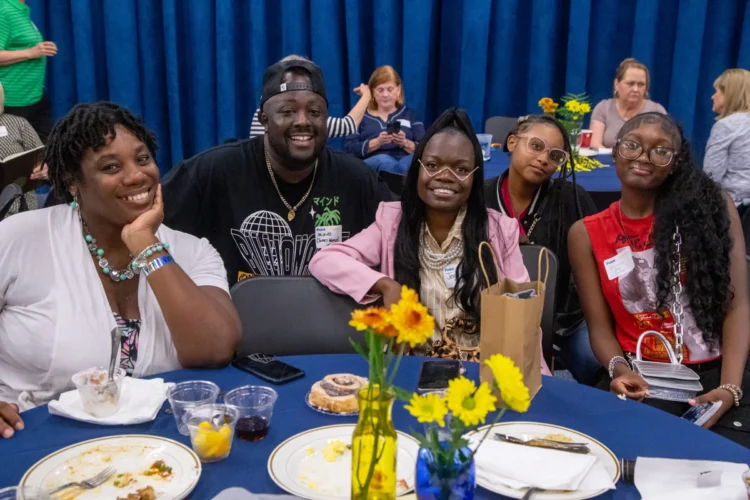Have you ever found yourself looking at someone else and wondered why they choose to do something the way they are doing it? Surely it can be done better! In fact, you can think of a way or two to do it better yourself. A character in one of my favorite passages of scripture to use as a devotion while teaching Introduction to Adult Learning has that same experience. The story I use is of Mary and Martha in Luke 10:38-42.
As Jesus and his disciples were on their way, he came to a village where a woman named Martha opened her home to him. She had a sister called Mary, who sat at the Lord’s feet listening to what he said. But Martha was distracted by all the preparations that had to be made. She came to him and asked, “Lord, don’t you care that my sister has left me to do the work by myself? Tell her to help me! “Martha, Martha,” the Lord answered, “you are worried and upset about many things, but few things are needed—or indeed only one. Mary has chosen what is better, and it will not be taken away from her.” (NIV)
In this passage, we see Mary and Martha taking two different approaches to the arrival of Jesus. Martha had invited Jesus to her house and was busy making meal preparations while Mary was sitting and listening to Jesus. I imagine that, while not always with Jesus, this was a familiar scene at Martha’s house; Martha prepared a meal in the kitchen while Mary entertained the guest. I invite my students to analyze this passage as they are studying strengths. What can we see about Mary and Martha when trying to find the strengths they are exhibiting in this passage? While I think it is possible to uncover numerous strengths in the passage, the first two that come to mind are responsibility and relator. Martha is using her strength of responsibility to make sure that her guests that she invited have adequate provision while under her roof. Mary is drawn to the person. She connects with them in that way that comes naturally to a relator. Both are really great strengths to have!
I have encountered students that relate to both Mary and Martha. For those that see themselves in Mary, it is easy for them to see why Martha is admonished by Jesus, and believe that Martha should be joining Mary on the floor at the feet of Jesus. There are many students that walk in Martha’s shoes and wrestle a little more heavily with the words of Jesus addressed to Martha. Relating so closely to Martha, they take it as a warning to change their ways. While these two perspectives may represent only the extremes, they both tend to look at one option as wrong and the other right. What if both activities were right and it was the execution that was wrong?
Let us assume that both sisters are operating out of their strengths. Everything is going well until Martha is distracted by the overwhelming activity of making preparations, and then she speaks, “Lord don’t you care that Mary is not serving you the way I am serving you? Please tell her to serve you the right way!” Phrased like this it sounds presumptuous, but maybe there is something to it. Martha lost focus of using her strengths to serve Jesus and instead focused on how her sister was serving Jesus differently. How many times have we missed seeing the good someone was doing because it did not match our expectations? Admittedly, part of what I see this in the chapter could be due to my own strength of individualization that seeks to find and utilize the strengths of others to maximize efficiency by connecting the best person with the job at hand. This passage reflects a failure in accepting diversity. Diversity is about much more than accepting those of a different color skin; it is about accepting people that do things differently. Not just a little different, but majorly different. To do this requires understanding and getting past our fears and insecurities to be able to accept different ways of accomplishing God’s will.
Notice the differences in the people around you, but instead of comparing them to your strengths and ways of acting, find the strengths behind their actions. Celebrate those strengths. Use each other’s strengths to complement what you are doing. In this way, the puzzle pieces of the body of Christ come together beautifully. It would be difficult to put together a puzzle where every piece was the same, so do not try to make them like you. Encourage them to be like Jesus. God is big enough that as people move towards him, their strengths will become that much more refined even if different than your own. What matters is that we work together using our strengths to meet the Lord in what he is doing. Celebrate the differences in other people, because together it makes us stronger!



